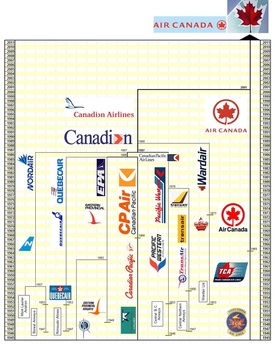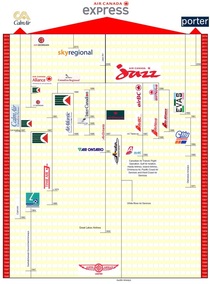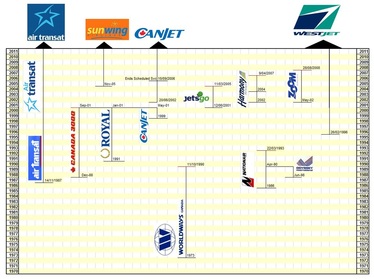- Home
-
My Models
-
AV History
- Airline History Blog
-
Airline Development
>
-
Liveries
>
- Aeroméxico Liveries
- Air China Special Liveries
- American Airlines Liveries
- British Airways Liveries
- Continental Airlines Liveries
- Delta Air Lines Liveries
- Eastern Air Lines Liveries
- Landor Liveries
- National Airlines Liveries
- Northeast Airlines Liveries
- Northwest Airlines Liveries
- Pan Am Liveries
- Trans World Airlines Liveries
- United Airlines Liveries
- Western Airlines Liveries
- Airbus A380s >
- Boeing 747 >
- Real Airport Histories >
- Plane Spotting >
- Aviation Stickers >
-
1:400 SCALE
- Collecting 1:400 Scale >
- The History of 1:400 Scale >
-
1:400 Brands
>
- Aeroclassics >
- Airshop Diecast
- AURORA Models
- Aviation400 (2007-2012)
- Big Bird 400 Your Craftsman
- Black Box Models
- Blue Box & Magic Models
- C Models
- Dragon Wings
- El Aviador 400
- Gemini Jets >
- JAL Collection / Jet Hut >
- Jet-X >
- MP4 Models
- NG Models >
- Panda Models >
- Phoenix Models >
- Seattle Models Co (SMA)
- Skyjets400
- Sovereign Models
- TucanoLine
- Witty Wings / Apollo
- Yu ModeLs
- 1:400 Custom Models >
- Production Numbers
- Zinc Rot
-
1:400 Moulds
- The Best Moulds >
- Airbus >
-
Boeing
>
- Boeing B-377 Stratocruiser
- Short Boeing 707s & 720s
- Boeing 707-320/420
- Boeing 717
- Boeing 727-100
- Boeing 727-200
- Boeing 737-100/200
- Boeing 737-300 >
- Boeing 737-400
- Boeing 737-500
- Boeing 737-600
- Boeing 737-700/800/900 >
- Boeing 737 MAX
- Boeing 747-100/200 >
- Boeing 747-400 >
- Boeing 747SP
- Boeing 747-8 Interactive
- Boeing 747LCF Dreamlifter
- Boeing 757-200 >
- Boeing 757-300
- Boeing 767-200
- Boeing 767-300
- Boeing 777-200
- Boeing 777-300
- Boeing 787
- British >
- Douglas >
- Lockheed >
- Other >
- Chinese >
- Soviet >
- Smallest Moulds in 1:400
-
1:400 Reviews
-
Model News
- Model Blog
-
New Mould Samples
>
- Aviation400 >
- JC Wings >
-
NG Models 400 Scale
>
- Airbus A318
- Airbus A319/320 CEO
- Airbus A319/320 NEO
- Airbus A321CEO & NEO
- Airbus A330-200/300
- Airbus A330 Beluga XL
- Airbus A330-800/900
- Airbus A340-200/300
- Airbus A350-900
- Airbus A350-1000
- Boeing 737-600/700/900
- Boeing 737-600 Refresh
- Boeing 737-800
- Boeing 737 MAX-8/MAX-9
- Boeing 737 MAX-7/MAX-10
- Boeing 747-100
- Boeing 747-200
- Boeing 747-400
- Boeing B747SP
- Boeing 747-8I
- Boeing 747-8F
- NG 747s Together
- Boeing 757-300
- Boeing 767-200/300 >
- Boeing 767-400 >
- Boeing 777-200
- Boeing 777-300/300ER
- Boeing 787-8
- Lockheed L-1011 Tristar
- Lockeed Tristar 500
- McDonnell Douglas MD-80
- McDonnell Douglas MD-87
- Tupolev Tu-154
- Tupolev Tu-204/Tu-214/Tu-234
- NG Models 200 Scale >
- Phoenix Models >
- Yu ModeL >
-
1:600 SCALE
- DIORAMAS
Airline Development in Canada 1937-2014

The Regulated Era 1937-1984
Regulation within the Canadian aviation scene can be traced back to as early as 1919 and by the end of the 1930s the environment was fully regulated. From 1937 Trans-Canada Airlines had a complete monopoly on all domestic transcontinental and international services but from 1948 Canadian Pacific was designated as the international airline for the Pacific region.
It wasn’t until 1957 that Canadian Pacific was allowed to start transcontinental services albeit extremely limited ones primarily designed not to compete with TCA but to bolster its international operations. Canadian Pacific became CP Air and gradually increased its domestic presence however it wasn’t until 1979 that capacity constraints favouring Air Canada were lifted. In the same year Wardair, which had previously been forced to remain an international charter airline, was allowed to operate Advance Booking Charters (ABCs) on domestic routes.
Canada’s Regional Air Carrier Policy enabled five largely provincial airlines (Pacific Western, Quebecair, Nordair, Transair and Eastern Provincial) to operate thinner routes without suffering from competition with each other or Air Canada.
Deregulation & Beyond 1984-2014
The move towards deregulation in the United States couldn’t help but set similar forces to work within Canada though the differing nature of the Canadian market didn’t make full deregulation certain. The visibility of cheap US fares and the ability of many Canadians to hop across the border and use cheaper US services effectively guaranteed that Canada would have to follow suit.
Between 1979 and the start of full deregulation on 1st January 1988 there was a gradual lessening of regulatory control with increasing allowance of cheaper discount fares and charter operations but not liberalisation of entry/exit into markets or service conditions. Full deregulation of the market was accepted by the airlines and government from 1984.
The Canadian Air Policy of May 10th 1984 significantly increased the ability of airlines to compete and for new airlines to enter the marketplace. It divided Canada into two geographic areas: a sparsely populated Northern region, which relying on air service for survival remained highly regulated, and a densely populated Southern region in which regulations would be removed.
The 1984 act resulted in new business class products and frequent flyer programmes but was mainly defined by initial expansion of service and then a period of consolidation. This meant that by 1988 all of the regional airlines had been absorbed in a complicated multi-merger by CP Air and then its reverse takeover by Pacific Western to form Canadian Airlines International.
There was no influx of new entrants into the market and indeed Wardair itself found itself near bankruptcy by 1989, due to over-expansion and intense competition, which meant it too joined the Canadian Airlines International agglomeration. That left Canada with only two major airlines – Air Canada (now privatised) and Canadian.
Regulation within the Canadian aviation scene can be traced back to as early as 1919 and by the end of the 1930s the environment was fully regulated. From 1937 Trans-Canada Airlines had a complete monopoly on all domestic transcontinental and international services but from 1948 Canadian Pacific was designated as the international airline for the Pacific region.
It wasn’t until 1957 that Canadian Pacific was allowed to start transcontinental services albeit extremely limited ones primarily designed not to compete with TCA but to bolster its international operations. Canadian Pacific became CP Air and gradually increased its domestic presence however it wasn’t until 1979 that capacity constraints favouring Air Canada were lifted. In the same year Wardair, which had previously been forced to remain an international charter airline, was allowed to operate Advance Booking Charters (ABCs) on domestic routes.
Canada’s Regional Air Carrier Policy enabled five largely provincial airlines (Pacific Western, Quebecair, Nordair, Transair and Eastern Provincial) to operate thinner routes without suffering from competition with each other or Air Canada.
Deregulation & Beyond 1984-2014
The move towards deregulation in the United States couldn’t help but set similar forces to work within Canada though the differing nature of the Canadian market didn’t make full deregulation certain. The visibility of cheap US fares and the ability of many Canadians to hop across the border and use cheaper US services effectively guaranteed that Canada would have to follow suit.
Between 1979 and the start of full deregulation on 1st January 1988 there was a gradual lessening of regulatory control with increasing allowance of cheaper discount fares and charter operations but not liberalisation of entry/exit into markets or service conditions. Full deregulation of the market was accepted by the airlines and government from 1984.
The Canadian Air Policy of May 10th 1984 significantly increased the ability of airlines to compete and for new airlines to enter the marketplace. It divided Canada into two geographic areas: a sparsely populated Northern region, which relying on air service for survival remained highly regulated, and a densely populated Southern region in which regulations would be removed.
The 1984 act resulted in new business class products and frequent flyer programmes but was mainly defined by initial expansion of service and then a period of consolidation. This meant that by 1988 all of the regional airlines had been absorbed in a complicated multi-merger by CP Air and then its reverse takeover by Pacific Western to form Canadian Airlines International.
There was no influx of new entrants into the market and indeed Wardair itself found itself near bankruptcy by 1989, due to over-expansion and intense competition, which meant it too joined the Canadian Airlines International agglomeration. That left Canada with only two major airlines – Air Canada (now privatised) and Canadian.

In addition the other major change was the creation of feeder networks utilising a large number of existing third-tier operators which became affiliates of the two majors. From 1986 to 1988 all but one of the major feeder airlines was either taken over or signed agreements with Air Canada or Canadian. Unsurprisingly over time they have also consolidated, until by 2001 almost all regional operations were operating as one airline – Air Canada Jazz.
This consolidation was perhaps inevitable. Large incumbent airlines could exploit their existing size and the market simply wasn’t large enough to support three airlines especially when all regional operators had become aligned with the two majors. In addition they controlled the computerised reservation system infrastructure plus the majority of airport facilities.
The eventual takeover battle between Air Canada and Canadian briefly suggested that the Canadian market was even too small for two airlines, however the emergence of low-cost carriers, in parallel with elsewhere in the world, has at least allowed the duopoly to be sustained (thanks to Westjet).
This consolidation was perhaps inevitable. Large incumbent airlines could exploit their existing size and the market simply wasn’t large enough to support three airlines especially when all regional operators had become aligned with the two majors. In addition they controlled the computerised reservation system infrastructure plus the majority of airport facilities.
The eventual takeover battle between Air Canada and Canadian briefly suggested that the Canadian market was even too small for two airlines, however the emergence of low-cost carriers, in parallel with elsewhere in the world, has at least allowed the duopoly to be sustained (thanks to Westjet).
- Home
-
My Models
-
AV History
- Airline History Blog
-
Airline Development
>
-
Liveries
>
- Aeroméxico Liveries
- Air China Special Liveries
- American Airlines Liveries
- British Airways Liveries
- Continental Airlines Liveries
- Delta Air Lines Liveries
- Eastern Air Lines Liveries
- Landor Liveries
- National Airlines Liveries
- Northeast Airlines Liveries
- Northwest Airlines Liveries
- Pan Am Liveries
- Trans World Airlines Liveries
- United Airlines Liveries
- Western Airlines Liveries
- Airbus A380s >
- Boeing 747 >
- Real Airport Histories >
- Plane Spotting >
- Aviation Stickers >
-
1:400 SCALE
- Collecting 1:400 Scale >
- The History of 1:400 Scale >
-
1:400 Brands
>
- Aeroclassics >
- Airshop Diecast
- AURORA Models
- Aviation400 (2007-2012)
- Big Bird 400 Your Craftsman
- Black Box Models
- Blue Box & Magic Models
- C Models
- Dragon Wings
- El Aviador 400
- Gemini Jets >
- JAL Collection / Jet Hut >
- Jet-X >
- MP4 Models
- NG Models >
- Panda Models >
- Phoenix Models >
- Seattle Models Co (SMA)
- Skyjets400
- Sovereign Models
- TucanoLine
- Witty Wings / Apollo
- Yu ModeLs
- 1:400 Custom Models >
- Production Numbers
- Zinc Rot
-
1:400 Moulds
- The Best Moulds >
- Airbus >
-
Boeing
>
- Boeing B-377 Stratocruiser
- Short Boeing 707s & 720s
- Boeing 707-320/420
- Boeing 717
- Boeing 727-100
- Boeing 727-200
- Boeing 737-100/200
- Boeing 737-300 >
- Boeing 737-400
- Boeing 737-500
- Boeing 737-600
- Boeing 737-700/800/900 >
- Boeing 737 MAX
- Boeing 747-100/200 >
- Boeing 747-400 >
- Boeing 747SP
- Boeing 747-8 Interactive
- Boeing 747LCF Dreamlifter
- Boeing 757-200 >
- Boeing 757-300
- Boeing 767-200
- Boeing 767-300
- Boeing 777-200
- Boeing 777-300
- Boeing 787
- British >
- Douglas >
- Lockheed >
- Other >
- Chinese >
- Soviet >
- Smallest Moulds in 1:400
-
1:400 Reviews
-
Model News
- Model Blog
-
New Mould Samples
>
- Aviation400 >
- JC Wings >
-
NG Models 400 Scale
>
- Airbus A318
- Airbus A319/320 CEO
- Airbus A319/320 NEO
- Airbus A321CEO & NEO
- Airbus A330-200/300
- Airbus A330 Beluga XL
- Airbus A330-800/900
- Airbus A340-200/300
- Airbus A350-900
- Airbus A350-1000
- Boeing 737-600/700/900
- Boeing 737-600 Refresh
- Boeing 737-800
- Boeing 737 MAX-8/MAX-9
- Boeing 737 MAX-7/MAX-10
- Boeing 747-100
- Boeing 747-200
- Boeing 747-400
- Boeing B747SP
- Boeing 747-8I
- Boeing 747-8F
- NG 747s Together
- Boeing 757-300
- Boeing 767-200/300 >
- Boeing 767-400 >
- Boeing 777-200
- Boeing 777-300/300ER
- Boeing 787-8
- Lockheed L-1011 Tristar
- Lockeed Tristar 500
- McDonnell Douglas MD-80
- McDonnell Douglas MD-87
- Tupolev Tu-154
- Tupolev Tu-204/Tu-214/Tu-234
- NG Models 200 Scale >
- Phoenix Models >
- Yu ModeL >
-
1:600 SCALE
- DIORAMAS
